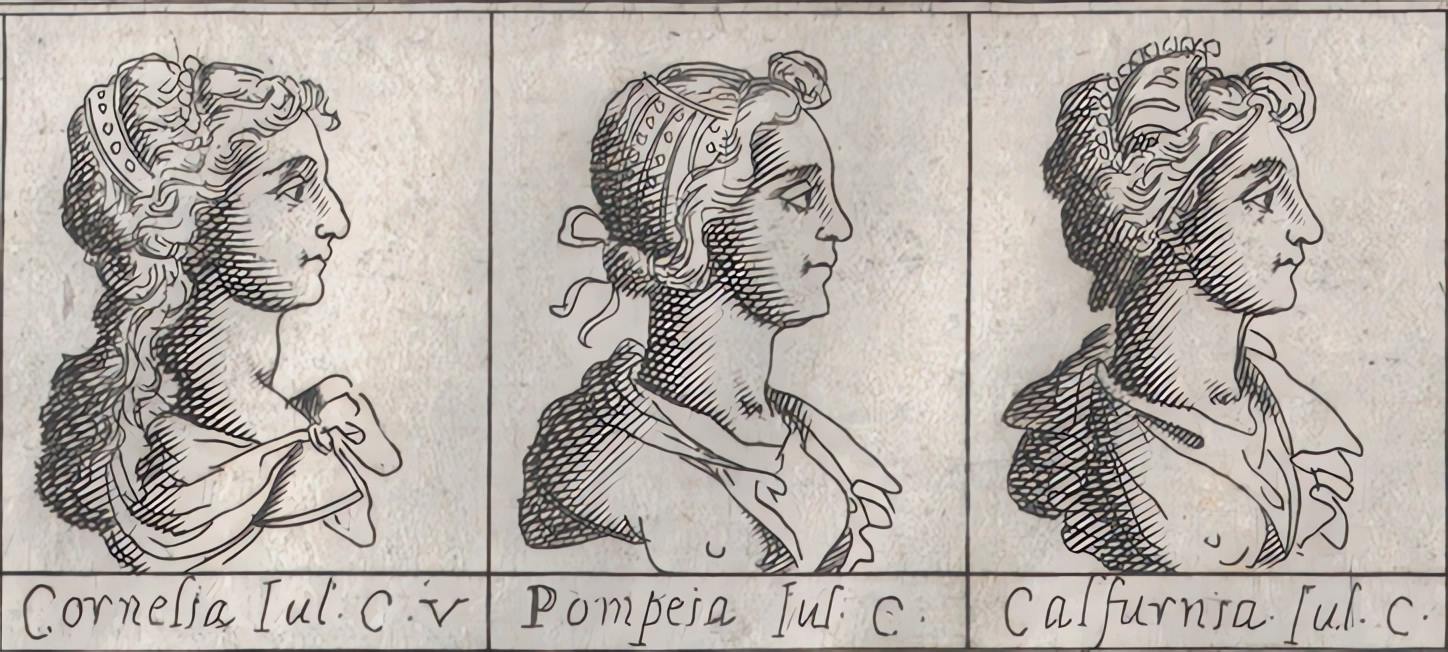Julius Caesar, one of the most prominent figures in ancient Roman history, was not only a military genius and political leader but also a man with a captivating love life. Throughout his life, he married three remarkable women: Cornelia, Pompeia, and Calpurnia. Each of these wives held significant roles during their times with Caesar. Beyond his marriages, he also had notable romantic liaisons with other women, particularly Servilia and the enigmatic Egyptian queen, Cleopatra. These relationships not only influenced Caesar’s personal journey but also left an indelible mark on the political landscape of the Roman era.
Cornelia

Married to Julius Caesar: 83 BC – 69 BC
Cornelia was Julius Caesar’s first wife, and her union with him spanned from 83 BC until her untimely death in 69 BC. She was born into the influential Cinna family, being the daughter of the four-time consul Lucius Cornelius Cinna. This union was crucial for Caesar, as it allowed him to form political alliances and advance his early career, leveraging the significant influence of Cornelia’s family. Together, they had one daughter, Julia, who would later become an essential figure in political marriages of her own.
The marriage between Caesar and Cornelia was marked by long separations due to Caesar’s military expeditions and missions. Despite the physical distance, there is no record of discord between them, and her death left Caesar in profound grief. Cornelia died at a young age, and her passing was a significant loss for Caesar both personally and politically, as he lost a reliable ally in the intricate and often tumultuous political landscape of Rome.
Pompeia
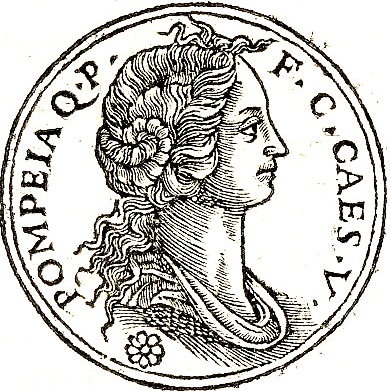
Married to Julius Caesar: 67 BC – 61 BC
Pompeia became Julius Caesar’s second wife in 67 BC, following the death of Cornelia. She was a member of the prominent gens Pompeia and was connected to some of the most influential figures of the time. This marriage, much like his first, provided Caesar with further opportunities to strengthen his political ties and status within Roman society.
However, their union was not without controversy. The most notable scandal during their marriage was the affair of the Bona Dea festival. During this sacred event, where men were strictly forbidden, a young patrician named Publius Clodius Pulcher managed to sneak in, allegedly to court Pompeia. Though it was uncertain how much Pompeia was involved or if she was even aware of Clodius’s intentions, the incident severely tainted her reputation and brought significant embarrassment to Caesar. While Caesar stated that he believed Pompeia was innocent, he famously remarked, “Caesar’s wife must be above suspicion,” and divorced her in 61 BC to preserve his honor and reputation amidst the political elite of Rome.
Calpurnia
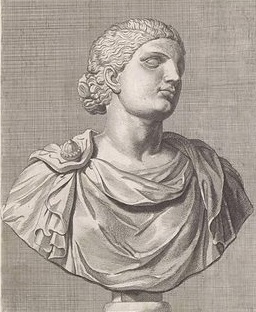
Married to Julius Caesar: 59 BC – 44 BC
Calpurnia, the last wife of Julius Caesar, entered his life in 59 BC. She hailed from an illustrious lineage, the Calpurnii Pisones family. With this marriage, Caesar fortified his connections with another prominent Roman family, emphasizing his practice of intertwining personal relationships with political strategy.
Throughout their marriage, Calpurnia and Caesar faced numerous challenges, primarily due to Caesar’s rising power and the subsequent threats against his life. As a devoted wife, she often displayed deep concerns for his safety, especially towards the end of his life. One of the most famous instances of her premonitions was on the eve of Caesar’s assassination. Calpurnia was said to have experienced a vivid dream where she saw her husband’s assassination, leading her to urgently plead with him to avoid attending the Senate on the Ides of March in 44 BC. Despite her forewarnings, Caesar attended and met his tragic end. Their union, which ended with Caesar’s assassination, was marked by loyalty and deep personal concern amidst the tumultuous backdrop of Roman politics.
Servilia
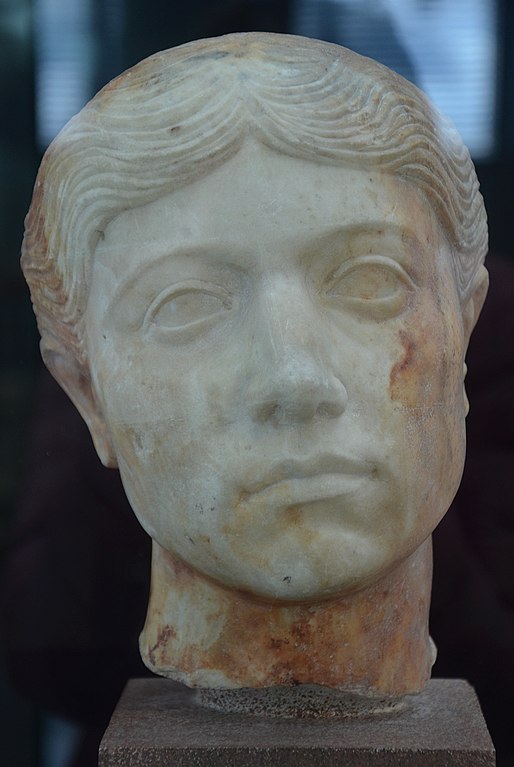
Julius Caesar’s romantic liaisons were not limited to his wives, and among the most notable of his mistresses was Servilia. For over two decades, Servilia and Caesar maintained a passionate and enduring affair, one that has been well-documented by ancient historians. Their relationship was not just a fleeting romance but was instead characterized by depth and duration, making it one of the most intriguing aspects of Caesar’s personal life.
Moreover, the political connections and implications of this liaison were profound. Servilia was the mother of Marcus Junius Brutus, one of the primary conspirators behind Caesar’s assassination. The very thought that Caesar’s lover bore a child who would later become one of his executors adds a layer of complexity and tragedy to their relationship and to Caesar’s ultimate fate. The interweaving of personal passions with political motivations in this relationship showcases the intricate web of loyalties and betrayals that defined Roman politics and personal relationships during Caesar’s time.
Cleopatra
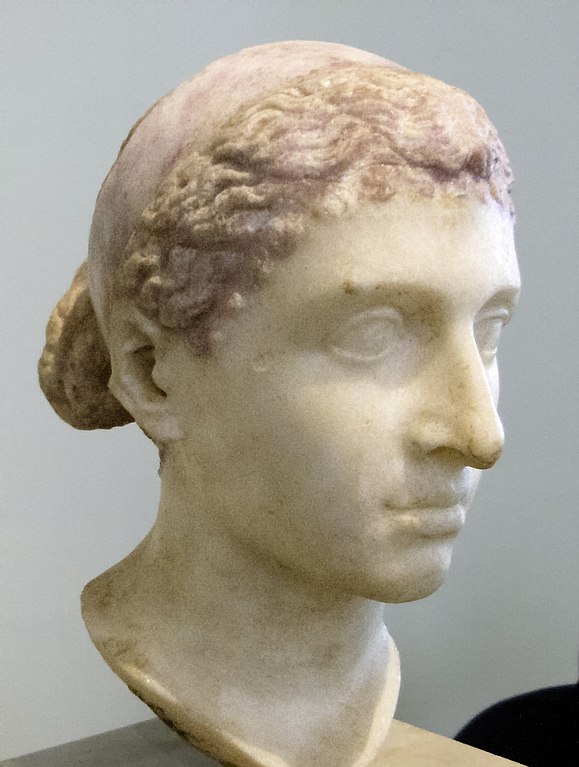
Cleopatra VII, the last active ruler of the Ptolemaic Kingdom of Egypt, is arguably one of the most iconic and enigmatic figures in ancient history. She was a woman of immense intellect, political acumen, and legendary allure. Cleopatra’s romantic association with Julius Caesar began when, in an audacious move to reclaim her throne, she had herself rolled in a carpet and presented to him. Their meeting not only solidified a political alliance between Rome and Egypt but also ignited a passionate love affair that would alter the course of history.
From their union, a son was born, named Ptolemy XV Philopator Philometor Caesar, more commonly referred to as Caesarion or “Little Caesar.” Cleopatra’s influence on Caesar was evident, especially when in 46 BC, she visited Rome with their son. During her stay, she resided in one of Caesar’s villas, and her presence in the capital was a testament to her significance in Caesar’s life. This relationship endured until Caesar’s assassination in 44 BC, after which Cleopatra returned to Egypt, deeply affected by the loss of her Roman lover.
Post Caesar’s demise, Cleopatra formed another significant Roman relationship, this time with Mark Antony, Caesar’s loyal general and friend. Antony, enthralled by Cleopatra, eventually married her, despite having a Roman wife. Together, they had three children: Alexander Helios, Cleopatra Selene II, and Ptolemy Philadelphus. However, the political complexities and tensions between Rome and Egypt escalated, culminating in military confrontations and the tragic end of both Antony and Cleopatra. Facing certain defeat by the hands of Octavian, and unable to bear the thought of capture, both Cleopatra and Antony committed suicide, marking the end of the Ptolemaic rule in Egypt and the beginning of Egypt as a Roman province.
Historical Challenge: Can You Conquer the Past?
Answer more than 18 questions correctly, and you will win a copy of History Chronicles Magazine Vol 1! Take our interactive history quiz now and put your knowledge to the test!

